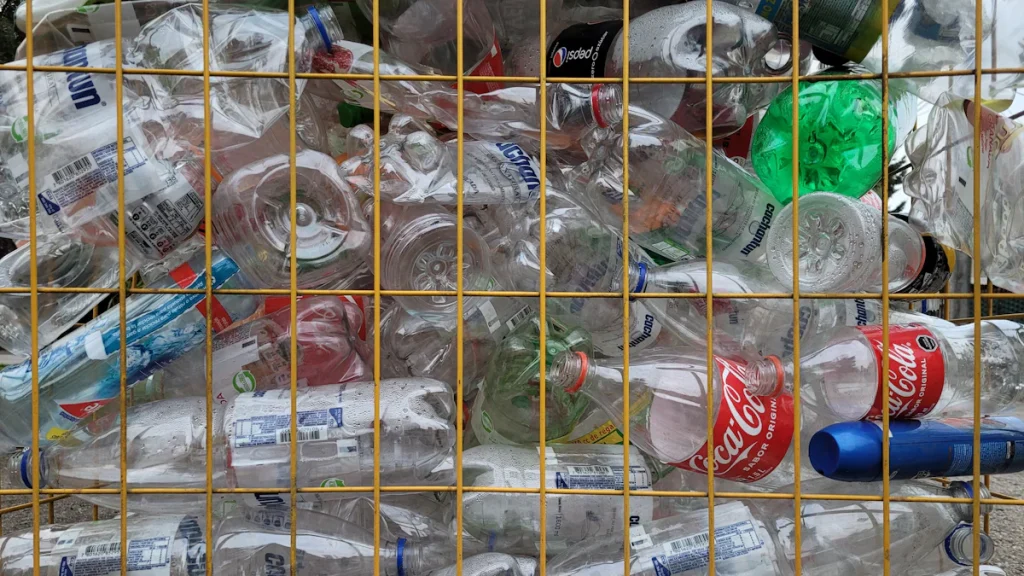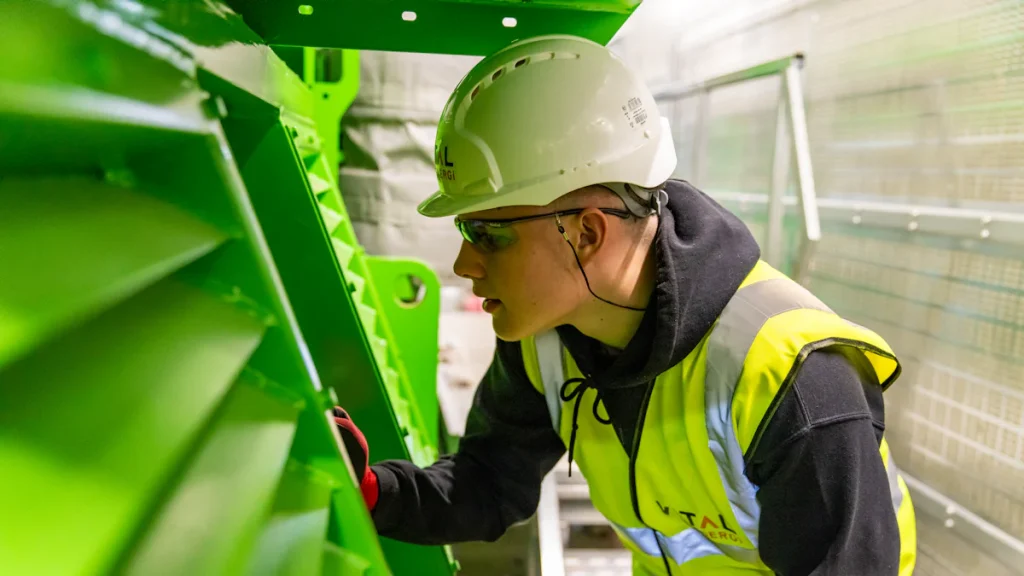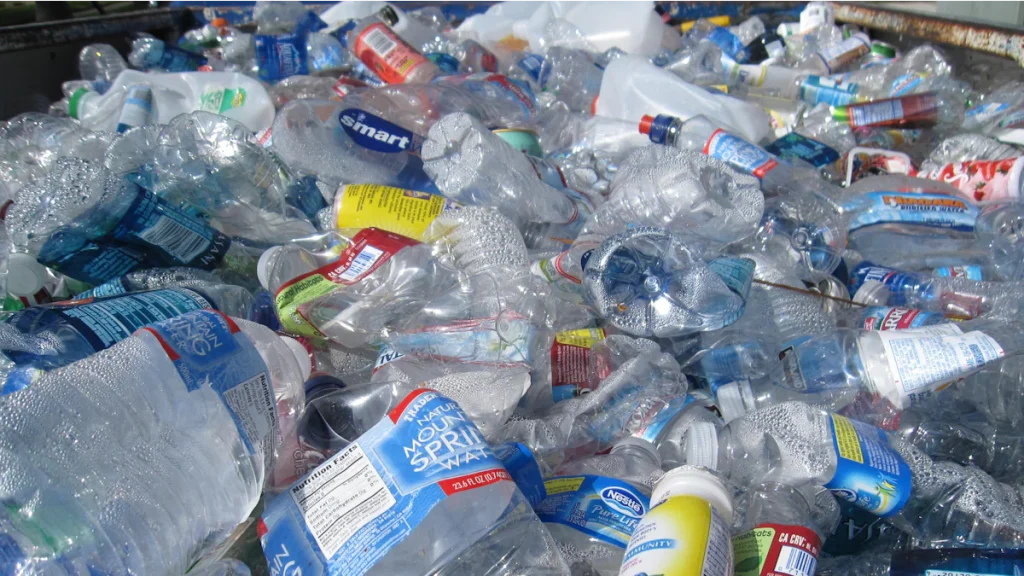Recycled Polyester transforms plastic waste into valuable fabric. The textile industry ranks fourth in pollution due to discarded garments and unsustainable materials. Sustainability has become crucial for reducing this impact. Recycled Polyester comprised 16% of global polyester production in 2017, showing significant growth from previous years. This process turns plastic bottles into new fibers, reducing landfill waste and conserving resources.
Understanding Recycled Polyester

Definition and Origin
What is Recycled Polyester?
Recycled Polyester transforms plastic waste into valuable fabric. Manufacturers create this material by breaking down PET bottles and garments into their core components. The process involves melting the plastic and re-spinning it into new polyester fiber. This method reduces landfill waste and conserves resources.
History and Development
The development of Recycled Polyester began in the late 20th century. Researchers aimed to find sustainable alternatives to virgin polyester, which relies heavily on petroleum. Over time, advancements in recycling technology made it possible to produce high-quality recycled fibers. Today, companies like Repreve use recycled plastic bottles and old polyester clothing to create new materials.
The Recycling Process
Collection of Plastic Bottles
The journey starts with collecting post-consumer PET bottles from various sources such as recycling centers and curbside collection programs. These bottles serve as the primary raw material for producing Recycled Polyester.
Cleaning and Shredding
After collection, facilities clean the plastic bottles to remove any contaminants like labels or food residue. Once cleaned, machines shred the bottles into small flakes. This step ensures that only pure PET material proceeds to the next stage.
Conversion to Polyester Fiber
The shredded flakes undergo a melting process where they are heated until they liquefy. The liquid PET is then extruded through spinnerets, forming long strands of polyester fiber. These fibers are cooled, stretched, and cut into desired lengths for textile production.
Types of Recycled Polyester
100% Recycled Polyester
100% Recycled Polyester consists entirely of fibers derived from recycled PET materials. This type offers a closed-loop solution by turning potential waste into wearable wonders without mixing with other materials.
Blends with Other Materials (e.g., cotton, organic cotton)
Blended Recycled Polyester combines recycled fibers with other materials like cotton or organic cotton. These blends enhance fabric properties such as comfort, breathability, and durability while maintaining sustainability benefits.
Applications in Workwear

Benefits of Recycled Polyester in Workwear
Durability and Strength
Recycled Polyester offers exceptional durability and strength, making it ideal for workwear. The fibers resist wear and tear, ensuring long-lasting garments. Industrial laundering does not compromise the integrity of Recycled Polyester fabrics. This resilience reduces the need for frequent replacements, saving costs over time.
Environmental Impact
Using Recycled Polyester in workwear significantly reduces environmental impact. The process diverts plastic waste from landfills and waterways. Manufacturing recycled fibers consumes less energy compared to virgin polyester production. This reduction in resource consumption supports sustainability goals within the textile industry.
Common Blends in Workwear
Recycled Polyester/Cotton
Blending Recycled Polyester with cotton enhances fabric properties. The combination provides comfort and breathability while maintaining durability. This blend suits various work environments requiring both strength and comfort.
Recycled Polyester/Organic Cotton
Combining Recycled Polyester with organic cotton offers additional sustainability benefits. Organic cotton reduces pesticide use, promoting healthier ecosystems. This blend creates eco-friendly workwear without sacrificing performance or quality.
Recycled Polyester/Cotton/Stretch
Adding stretch fibers to a Recycled Polyester and cotton blend improves flexibility. Workers benefit from increased mobility and comfort during physical tasks. This blend adapts well to demanding work conditions requiring both durability and ease of movement.
Examples of Brands Using Recycled Polyester
Leading Workwear Brands
Several leading brands incorporate Recycled Polyester into their products:
- Patagonia
- Levi’s
- Timberland Pro
- Carhartt
These companies prioritize sustainability by using recycled materials in their collections.
Specific Examples and Case Studies
Brands like Patagonia use REPREVE® recycled polyester fibers, known for their durability during industrial laundering. Sustainable protective fabrics also feature verified lifecycle data, including an Environmental Product Declaration (EPD®). These examples highlight successful applications of Recycled Polyester in creating high-performance workwear.
Certifications and Standards
Importance of Certifications
Ensuring Quality and Sustainability
Certifications play a crucial role in ensuring the quality and sustainability of Recycled Polyester. The Global Recycled Standard (GRS) serves as a voluntary product standard for tracking and verifying recycled materials in final products. GRS addresses traceability, environmental principles, social requirements, chemical content, and labeling. Third-party certification ensures that claims about recycled content are accurate. This process guarantees that Recycled Polyester meets high standards for both quality and sustainability.
Our Company’s Certifications
Recycled Polyester Certification
Our company holds certifications for Recycled Polyester fibers according to GRS standards. The certification verify the percentage of recycled polyester content in our products. This verification process ensures transparency and trustworthiness in our supply chain.
Organic Cotton Certification
In addition to Recycled Polyester, our company also certifies organic cotton through recognized standards. Organic cotton certification promotes healthier ecosystems by reducing pesticide use. Combining organic cotton with Recycled Polyester enhances the overall sustainability of our products.
Our Product Offerings
Recycled Polyester/Cotton
Our product line includes blends of Recycled Polyester with cotton. This combination provides comfort, breathability, and durability. The blend suits various applications requiring both strength and comfort.
Recycled Polyester/Organic Cotton
We offer blends of Recycled Polyester with organic cotton for additional sustainability benefits. Organic cotton reduces environmental impact while maintaining high performance.
Recycled Polyester/Cotton/Stretch
Adding stretch fibers to a blend of Recycled Polyester and cotton improves flexibility. Workers benefit from increased mobility during physical tasks.
Recycled Polyester Organic Cotton Stretch Fabric for Trousers
Combining stretch fibers with Recycled Polyester and organic cotton creates versatile fabrics suitable for demanding conditions.
Recycled Polyester/Lyocell
Our offerings also include blends of Recycled Polyester with Lyocell, a sustainable fiber known for its softness and strength.
Future Implications and Trends
Innovations in Recycling Technology
Advances in Fiber Production
Advancements in fiber production have revolutionized the Recycled Polyester industry. New technologies enable manufacturers to create high-quality fibers from post-consumer waste. Chemical recycling plays a significant role by breaking down textiles into their molecular components. This process results in better-quality materials suitable for various applications.
Fiber-to-fiber recycling offers another promising innovation. This method allows the textile industry to recycle old garments directly into new fibers. The approach reduces waste and conserves resources, contributing to a more sustainable future.
New Blends and Applications
Innovations also extend to new blends and applications of Recycled Polyester. Combining recycled fibers with other sustainable materials enhances fabric properties. For example, blending Recycled Polyester with cellulosic fibers like Lyocell creates soft yet durable fabrics.
Manufacturers experiment with different combinations to meet specific needs. Workwear benefits from blends that offer durability, comfort, and flexibility. These innovations ensure that Recycled Polyester remains versatile and adaptable for various uses.
Market Trends and Consumer Demand
Growing Preference for Sustainable Products
Consumers increasingly prefer sustainable products, driving demand for Recycled Polyester. Awareness of environmental issues influences purchasing decisions. Shoppers seek eco-friendly alternatives to traditional textiles.
Brands respond by incorporating Recycled Polyester into their collections. Companies highlight sustainability efforts through marketing campaigns, appealing to environmentally conscious consumers.
Impact on the Textile Industry
The growing preference for sustainable products impacts the entire textile industry. Manufacturers prioritize eco-friendly materials like Recycled Polyester over virgin polyester. This shift reduces reliance on petroleum-based resources.
Sustainability becomes a key factor in product development and branding strategies. Companies invest in research and development to improve recycling processes and material quality. The trend towards sustainability reshapes the textile landscape, promoting responsible practices across the supply chain.
The journey from plastic bottles to fabric showcases the transformative power of Recycled Polyester. This material offers numerous benefits, including durability, strength, and reduced environmental impact. Applications in workwear highlight its versatility and sustainability.
Adopting sustainable practices in textile production is essential for a greener future. Consumers and manufacturers must prioritize eco-friendly materials like Recycled Polyester. Explore our certified Recycled Polyester products to support sustainability efforts.

